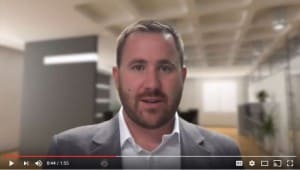In this week’s International Association of Interviewers interview and interrogation training tip provided by Wicklander-Zulawski, Dave Thompson, CFI wants to talk about the importance of “he-said, she-said” type of investigations. A recent study shows that about 70 percent of sexual harassment allegations go unreported. That’s a lot of issues happening—possibly in your organization—that you don’t even know about.
As an investigator, you have to think: what can we do to make the reporting structure easier and more efficient for those who feel offended or who have been a victim of one of these types of incidents? Secondly, what are we doing as investigators when these incidents are reported? Do we have a proper structure in place? Are we meeting them with urgency? Are we protecting the confidentiality of everyone involved?
Lastly, we have to think about the actual interview method that should be used to try to uncover the truth. A good cognitive interview, fact-gathering interview, and the type of interview where you allow your subject (whether victim, witness, or the accused) to tell their full version of the story, is highly recommended. The more information you have as the investigator, the easier it will be to uncover the truth.
Challenge yourself to go back to your organization and try to answer those questions. Make sure you have a great reporting structure, and make sure you have the ability and the training to know how to accurately investigate those cases when they are reported.
Every loss prevention investigator should continuously strive to enhance their investigative interviewing skills as part of an ongoing commitment to best-in-class interviewing performance. This includes holding ourselves to an elite standard of interview and interrogation training that is ethical, moral and legal while demanding excellence in the pursuit of the truth. The International Association of Interviewers (IAI) and Wicklander-Zulawski (WZ) provide interview and interrogation training programs and additional guidance to investigators when dealing with dishonest employees, employee theft, sexual harassment, policy violations, building rapport, pre-employment interviewing, lying, denials and obtaining a statement.
By focusing on the latest information and research from experts in the field as well as academia, legal and psychological resources, these video tips provide interview and interrogation training techniques that can enhance the skill sets of professionals with backgrounds in law enforcement, loss prevention, security, asset protection, human resources, auditors, or anyone looking to obtain the truth.
To learn more about interview and interrogation training and how you can further develop your professional skill sets, visit www.w-z.com or www.certifiedinterviewer.com.
This post was originally published in 2017 and was updated December 27, 2018.


